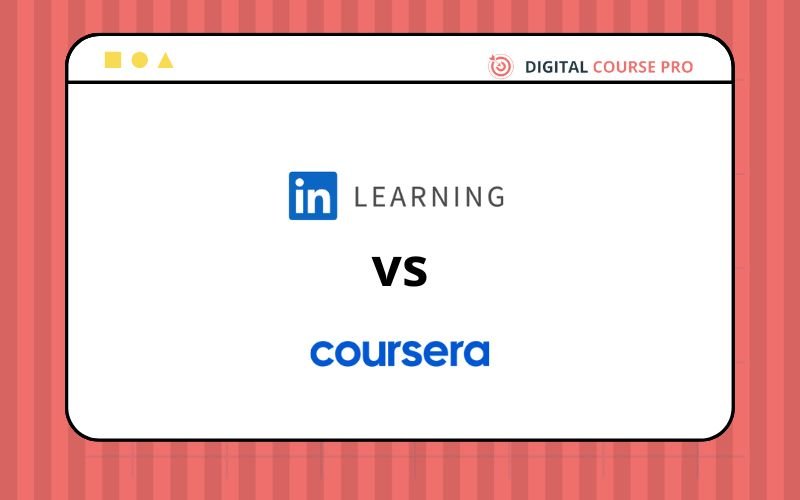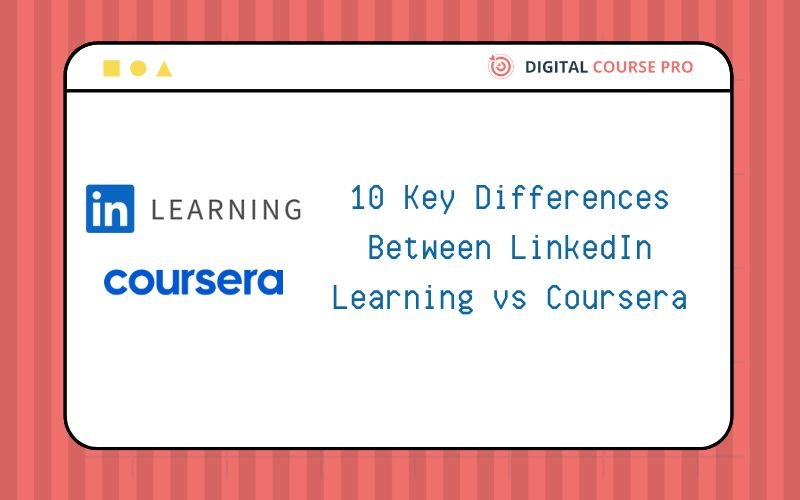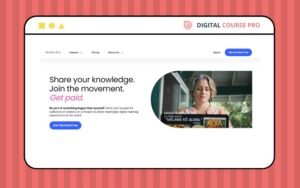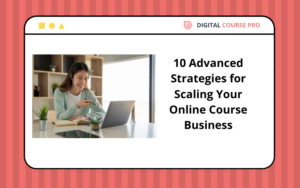LinkedIn Learning vs Coursera: In today’s digital age, the debate of LinkedIn Learning vs Coursera has become more relevant than ever. Both platforms offer a wealth of knowledge, but how do they stack up against each other? Whether you’re looking to advance your career or pick up a new hobby, understanding the nuances of LinkedIn Learning vs Coursera can help you make an informed decision.

Course Offerings
LinkedIn Learning vs Coursera: In today’s digital age, the debate of LinkedIn Learning vs Coursera has become more relevant than ever. Both platforms offer a wealth of knowledge, but how do they stack up against each other? Whether you’re looking to advance your career or pick up a new hobby, understanding the nuances of LinkedIn Learning vs Coursera can help you make an informed decision.
LinkedIn Learning
LinkedIn Learning offers over 16,000 courses primarily focused on professional development and practical skills. These courses are designed to help individuals enhance their careers, covering areas such as:
- Business: Leadership, management, marketing, and finance.
- Technology: Software development, IT infrastructure, data science, and cybersecurity.
- Creative: Graphic design, video production, photography, and animation.
The courses are often concise, ranging from a few minutes to several hours, making it easy to fit learning into a busy schedule. LinkedIn Learning is known for its:
- Practicality: Courses are tailored to provide immediate, actionable skills.
- Industry-Relevance: Content is frequently updated to reflect the latest industry trends and tools.
- Professional Instructors: Instructors are often seasoned professionals with substantial industry experience.
Coursera
Coursera, on the other hand, collaborates with top universities and organizations around the world to offer a broader spectrum of academic and professional courses. The platform boasts over 5,000 courses, including:
- Degree Programs: Bachelor’s and Master’s degrees from institutions like the University of London and the University of Illinois.
- Specializations: Series of courses focused on specific skills or career paths, often culminating in a capstone project.
- Professional Certificates: Programs designed to help learners get job-ready skills in fields like IT support, project management, and digital marketing.
Coursera’s courses are typically more in-depth and structured similarly to traditional university courses. They include features such as:
- Comprehensive Content: Courses often include video lectures, readings, quizzes, and peer-reviewed assignments.
- Academic Rigor: Many courses are developed and taught by professors from renowned universities.
- Flexibility: While some courses are self-paced, others follow a set schedule with weekly deadlines.
Course Topics Comparison
Let’s compare specific course topics offered by both platforms:
1. Data Science and Analytics
- LinkedIn Learning: Offers courses like “Learning Data Science,” “Excel Data Visualization,” and “SQL Essential Training.”
- Coursera: Provides more extensive programs like the “IBM Data Science Professional Certificate,” “Data Science Specialization” by Johns Hopkins University, and “Machine Learning” by Stanford University.
2. Business and Management
- LinkedIn Learning: Focuses on practical skills with courses like “Becoming a Manager,” “Marketing Strategy,” and “Finance for Non-Financial Managers.”
- Coursera: Offers more academic approaches such as “Foundations of Business Strategy” by the University of Virginia, “Financial Markets” by Yale University, and the “Strategic Leadership and Management Specialization” by the University of Illinois.
3. Technology and Programming
- LinkedIn Learning: Features courses like “Python Essential Training,” “Learning JavaScript,” and “AWS Essential Training for Developers.”
- Coursera: Provides in-depth programs like “Google IT Automation with Python Professional Certificate,” “Algorithms Specialization” by Stanford University, and “Full Stack Web Development Specialization” by the University of Michigan.
4. Creative Arts and Design
- LinkedIn Learning: Offers practical courses like “Photoshop CC 2021 Essential Training,” “Graphic Design Tips & Tricks,” and “3D Animation with Blender.”
- Coursera: Includes more specialized courses such as “Graphic Design Specialization” by CalArts, “Photography Basics and Beyond” by Michigan State University, and “Game Design: Art and Concepts” by CalArts.
Special Features and Tools
LinkedIn Learning vs Coursera also differ in the tools and features they offer:
- LinkedIn Learning: Provides integration with LinkedIn profiles, allowing learners to showcase their completed courses and certificates directly on their LinkedIn profiles. This feature enhances professional visibility and networking opportunities.
- Coursera: Offers Coursera Labs, hands-on projects, and real-world scenarios to apply learned skills. Many courses also include interactive elements like peer-graded assignments and community discussions.
Learning Experience
LinkedIn Learning vs Coursera: In today’s digital age, the debate of LinkedIn Learning vs Coursera has become more relevant than ever. Both platforms offer a wealth of knowledge, but how do they stack up against each other? Whether you’re looking to advance your career or pick up a new hobby, understanding the nuances of LinkedIn Learning vs Coursera can help you make an informed decision.
LinkedIn Learning
LinkedIn Learning offers a streamlined and user-friendly learning experience designed for professionals who need to acquire skills quickly and efficiently. Here are some key aspects of the learning experience on LinkedIn Learning:
- Interface and Navigation: LinkedIn Learning boasts an intuitive and clean interface that makes it easy for users to find, start, and complete courses. The platform is designed to minimize distractions and maximize focus on learning.
- Course Structure: Courses on LinkedIn Learning are typically divided into short, manageable video segments. This format allows learners to fit study sessions into their busy schedules, making it ideal for professionals looking to learn on the go.
- Learning Paths: LinkedIn Learning offers curated Learning Paths, which are series of courses grouped together to provide a comprehensive learning experience on a particular topic. For example, there are Learning Paths for becoming a project manager, digital marketer, or data analyst.
- Quizzes and Assessments: To reinforce learning, LinkedIn Learning includes quizzes and assessments throughout its courses. These help learners check their understanding of the material and track their progress.
- Practical Focus: The platform emphasizes practical, hands-on learning. Courses often include real-world examples and case studies to illustrate key concepts and demonstrate their application in professional settings.
- LinkedIn Integration: One of the standout features is the integration with LinkedIn profiles. Learners can easily add completed courses and certifications to their LinkedIn profiles, enhancing their professional credibility and visibility to potential employers.
Coursera
Coursera offers a more traditional, academic-style learning experience that is often comparable to university courses. Here are the key aspects of the learning experience on Coursera:
- Course Structure: Coursera courses are typically more structured and longer in duration compared to LinkedIn Learning. They often span several weeks to a few months and include a combination of video lectures, readings, quizzes, and peer-reviewed assignments.
- Academic Rigor: Many courses on Coursera are developed by universities and taught by professors. This academic foundation ensures a high level of rigor and depth in the course content.
- Assignments and Projects: Courses on Coursera often include graded assignments, projects, and exams. These components require learners to apply what they have learned and demonstrate their understanding through practical work.
- Peer Interaction: Coursera fosters a collaborative learning environment through discussion forums and peer reviews. Learners can interact with classmates from around the world, share insights, and provide feedback on assignments.
- Specializations and Degrees: Coursera offers Specializations, which are series of related courses that help learners master a specific skill. Additionally, Coursera provides opportunities to earn professional certificates and even complete full degree programs online.
- Flexibility and Deadlines: While some Coursera courses are self-paced, many follow a set schedule with weekly deadlines. This structure helps keep learners on track but also requires a higher level of commitment and time management.
- Hands-on Learning: Coursera Labs and hands-on projects provide learners with practical experience in applying their skills. For example, coding courses often include coding assignments that learners complete in an integrated development environment (IDE) provided by Coursera.
Certification
LinkedIn Learning vs Coursera: In today’s digital age, the debate of LinkedIn Learning vs Coursera has become more relevant than ever. Both platforms offer a wealth of knowledge, but how do they stack up against each other? Whether you’re looking to advance your career or pick up a new hobby, understanding the nuances of LinkedIn Learning vs Coursera can help you make an informed decision.
LinkedIn Learning
LinkedIn Learning offers certificates for every course completed. These certificates can be highly beneficial for professionals looking to showcase their skills and enhance their resumes. Here are some key features of LinkedIn Learning certificates:
- Professional Development Focus: LinkedIn Learning certificates are geared towards professional development. They are recognized in industries where practical skills and continuous learning are valued.
- LinkedIn Integration: One of the most significant advantages is the seamless integration with LinkedIn profiles. Upon completing a course, learners can instantly add the certificate to their LinkedIn profile, making it visible to their network and potential employers. This feature enhances professional visibility and can be a valuable asset during job searches.
- Certificate Content: The certificates typically include the course name, completion date, and instructor details. While they do not carry academic credit, they signify the learner’s commitment to professional growth and skill acquisition.
- Subscription-Based Access: Since LinkedIn Learning operates on a subscription model, learners have access to an extensive library of courses. This allows them to earn multiple certificates across various subjects without additional costs per course.
Coursera
Coursera offers a range of certification options, from course certificates to professional certificates, Specializations, and even full degrees. The certification offered by Coursera can have significant academic and professional recognition. Here are some key aspects of Coursera certificates:
- Academic Credentials: Many Coursera courses are developed in collaboration with top universities and institutions. Certificates from these courses often carry the branding of these prestigious entities, adding credibility and recognition.
- Professional Certificates: Coursera offers professional certificate programs in partnership with leading companies like Google, IBM, and Facebook. These certificates are designed to equip learners with job-ready skills and are often highly regarded by employers in the relevant industries.
- Specializations and Degrees: Coursera’s Specializations are series of courses focused on a specific skill or topic, culminating in a capstone project. Completing a Specialization provides a comprehensive understanding of the subject matter. Additionally, Coursera offers full degree programs (Bachelor’s and Master’s degrees) from accredited universities, providing a pathway to advanced academic qualifications.
- Academic Credit: Some Coursera courses and Specializations offer the option to earn academic credit, which can be transferred to degree programs at partner institutions. This feature is particularly valuable for learners seeking formal education and academic advancement.
- Cost Structure: Coursera operates on a pay-per-course model, but also offers Coursera Plus, a subscription service that provides access to the majority of courses on the platform. Some courses can be audited for free, but obtaining a certificate usually requires payment.
Comparison Summary
When comparing the certification aspect of LinkedIn Learning vs Coursera, consider the following:
- LinkedIn Learning:
- Best for quick, professional development and enhancing resumes with practical skills.
- Seamless LinkedIn profile integration enhances professional visibility.
- Subscription-based access allows for earning multiple certificates across various fields.
- Coursera:
- Ideal for academic and professional credentials with high recognition.
- Offers certificates from top universities and leading companies.
- Provides opportunities for academic credit and full degree programs.
- Suitable for in-depth, structured learning paths and career advancement in specific fields.
The choice between LinkedIn Learning vs Coursera depends on your career goals and the level of certification you need. If you are looking for professional development and quick skill acquisition, LinkedIn Learning is a great option. If you seek academic credentials, professional certificates from renowned companies, or even full degrees, Coursera is the better choice.
Cost
LinkedIn Learning vs Coursera: In today’s digital age, the debate of LinkedIn Learning vs Coursera has become more relevant than ever. Both platforms offer a wealth of knowledge, but how do they stack up against each other? Whether you’re looking to advance your career or pick up a new hobby, understanding the nuances of LinkedIn Learning vs Coursera can help you make an informed decision.
LinkedIn Learning
LinkedIn Learning operates on a subscription-based model, which offers several advantages for learners:
- Monthly Subscription: LinkedIn Learning charges a monthly fee of around $29.99, which grants unlimited access to its entire library of over 16,000 courses. This subscription model is ideal for individuals who plan to take multiple courses or need ongoing access to new content.
- Annual Subscription: For a discounted rate, users can opt for an annual subscription, which costs approximately $299.88 per year (equating to about $24.99 per month). This option offers significant savings for long-term learners.
- Free Trial: LinkedIn Learning provides a one-month free trial, allowing potential users to explore the platform and evaluate the courses before committing to a subscription.
- LinkedIn Premium: LinkedIn Learning is also included with LinkedIn Premium subscriptions. LinkedIn Premium, which costs $59.99 per month, includes additional features such as InMail credits, profile views, and enhanced job insights. This can be beneficial for job seekers and professionals looking to leverage LinkedIn’s networking capabilities alongside learning.
Coursera
Coursera offers a more diverse range of pricing models, accommodating different types of learners and budgets:
- Individual Courses: Many Coursera courses can be accessed for free in audit mode, which allows learners to view course materials without earning a certificate. To earn a certificate, learners typically pay a fee ranging from $29 to $99 per course.
- Specializations: Coursera Specializations, which are series of related courses designed to help learners master a specific skill, generally cost between $39 and $79 per month. These Specializations often include a capstone project and provide a more comprehensive learning experience.
- Professional Certificates: Professional certificate programs, developed in collaboration with industry leaders like Google and IBM, range in cost from $39 to $99 per month. These programs are designed to provide job-ready skills and often require a few months to complete.
- Coursera Plus: Coursera offers an all-access subscription service called Coursera Plus, priced at $399 per year. This subscription grants unlimited access to over 90% of the courses, Specializations, and Professional Certificates on the platform, making it a cost-effective option for avid learners.
- Degree Programs: Coursera partners with universities to offer full online degrees, including Bachelor’s and Master’s programs. These degrees can range in cost from $15,000 to $25,000, depending on the program and institution. While more expensive, these degrees provide a formal education credential recognized worldwide.
Comparison Summary
When comparing the cost of LinkedIn Learning vs Coursera, consider the following:
- LinkedIn Learning:
- Offers a subscription-based model with unlimited access to all courses for a monthly or annual fee.
- One-month free trial available to explore the platform.
- LinkedIn Premium includes LinkedIn Learning access, adding extra value for professionals.
- Coursera:
- Provides flexible pricing options, including free access to course materials in audit mode.
- Charges per course for certificates, with costs varying based on course and specialization.
- Offers Coursera Plus for unlimited access to most courses and certificates at a yearly rate.
- Includes more expensive degree programs that offer formal academic credentials.
The choice between LinkedIn Learning vs Coursera in terms of cost depends on your learning needs and budget. If you plan to take multiple courses and prefer a subscription model, LinkedIn Learning may be more cost-effective. If you seek specific certifications, specializations, or degrees with flexible pricing options, Coursera offers a broader range of choices.
Community and Networking
The community aspect of LinkedIn Learning vs Coursera is another point of consideration. LinkedIn Learning integrates seamlessly with the LinkedIn network, allowing for easy sharing and networking opportunities. Coursera, with its discussion forums and peer reviews, fosters a more academic and collaborative learning environment. For those looking to leverage their professional network, LinkedIn Learning offers a distinct advantage.
Instructor Quality
When it comes to the quality of instructors in LinkedIn Learning vs Coursera, both platforms boast impressive credentials. LinkedIn Learning instructors are often industry professionals with practical experience, while Coursera features professors and experts from top universities and institutions. Depending on whether you prefer learning from industry practitioners or academic experts, this could influence your choice.
Mobile Accessibility
LinkedIn Learning vs Coursera also differs in terms of mobile accessibility. Both platforms have mobile apps, but LinkedIn Learning’s app is particularly praised for its ease of use and offline learning capabilities. Coursera’s app, while robust, often requires an internet connection for full functionality. This makes LinkedIn Learning more convenient for learning on the go without always needing internet access.
Course Duration and Depth
The duration and depth of courses in LinkedIn Learning vs Coursera vary as well. LinkedIn Learning typically offers shorter, more concise courses aimed at quick skill acquisition. Coursera, however, provides more extensive courses, sometimes spanning several months, which can delve deeper into the subject matter. If you’re looking for a quick skill upgrade, LinkedIn Learning is more suitable, whereas Coursera is better for in-depth study.
Corporate Training Solutions
One area where LinkedIn Learning vs Coursera stands out is in corporate training solutions. LinkedIn Learning offers LinkedIn Learning for Business, a comprehensive solution for employee training and development. Coursera for Business also provides corporate training but is more focused on upskilling and reskilling employees with academic rigor. Depending on your organization’s training needs, either platform could be the better fit.
Overall Value
In conclusion, the choice between LinkedIn Learning vs Coursera ultimately depends on your individual needs and preferences. LinkedIn Learning is excellent for quick, practical learning and networking within the professional realm. Coursera shines with its academic rigor and potential for university credit. To delve deeper into how online learning can enhance your career, visit Digital Course Pro.





